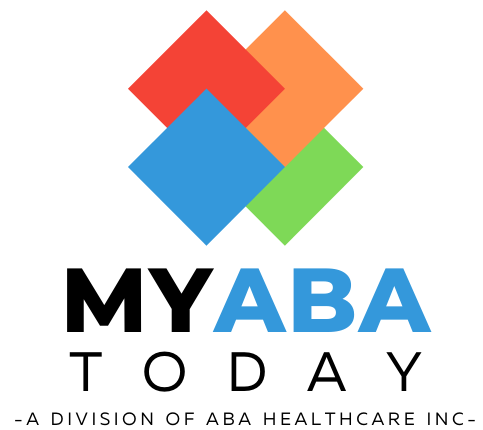Help! I am going to be starting Applied Behavior Analysis for my son who has autism. Can you tell me things to ask and what to look for in an ABA provider?
— Jane
I am so glad you asked this. Within the autism community, there are mixed feelings about Applied Behavior Analysis (ABA). But, research has shown time and again that ABA is the most effective treatment for autism for reducing problematic behaviors and increasing adaptive skills! When correctly implemented ABA can be life-changing, not just for your son, but for your entire family.
Trusting people with your child, especially one with special needs, can be scary! How do you know they’re treating your baby with love and kindness? How do you know they’re staying calm and patient when your child has a meltdown? How do you know that what they’re doing is working? Here are things to ask when working with any ABA provider:
WHAT TYPE OF ABA DO YOU PROVIDE AND WHAT WILL SESSIONS LOOK LIKE?
There are several styles of ABA and they can look very different. Therapy sessions can range from very structured and repetitive (Discrete Trial Training), to very play-based (Verbal behavior or Pivotal Response Treatment). Different styles are better suited for different learners. However, naturalistic and FUN learning is typically best and helps promote generalization. You definitely want to make sure that what they teach your child is generalized to his everyday life, and isn’t just evident in sessions with the therapists.
HOW MUCH AND WHAT TYPE OF TRAINING DOES THE TEAM HAVE?
Most importantly, you need a Board Certified Behavior Analyst (BCBA) on your team. Whether the BCBA manages the program or has a hands-on role, their oversight is critical. Some agencies may provide you with a BCBA who will come to your home and supervise the team and your child’s progress each month. Others will have a BCBA monitor progress through analyzing data and not through any in-person interaction. The more involved the BCBA, the better. But even if the BCBA is only overseeing things, their role is vital. Next, be sure that your team’s direct intervention staff is well-trained. Effective training includes not only didactic teaching but also hands-on experience. Training may include classroom-style lectures, role-playing, ride-along observations, and hands-on experience.
HOW INVOLVED WILL I BE WITH THE ASSESSMENT AND TREATMENT?
A good ABA provider will ALWAYS ask for parent input and will require parent involvement in sessions. For example: before deciding which self-care skill to teach, I will check with the parent to see which self-care skill they feel is most important to start with. I may think we should work on teeth brushing, but the parent may want us to work on dressing first. Your preferences and values should be considered in all parts of treatment. Additionally, an effective ABA treatment will focus on teaching the family intervention strategies so when services end you are fully equipped to help your child continue to make progress. One side note — sometimes it’s important for the team to establish instructional control and rapport with your child and your presence may be a hindrance. In those situations, it may be best for you to step away and observe from a distance. But as a general rule of thumb, you, your spouse, and any other caretakers should be involved in sessions.
HOW WILL YOU DETERMINE WHEN MY CHILD NO LONGER NEEDS SERVICES?
It is critically important for you as the parent to know when the ABA provider will consider your child “graduated.” From working in the field so many years I have lots of experience with different ABA providers and how they determine when a child no longer needs ABA. On the one hand, you want to celebrate when your child is ready to move on from receiving services. But on the other hand, I encourage you to think long term. The skills a four-year-old needs are very different than the skills a 14-year-old needs. Just because your child masters their original goals does not necessarily mean they should be graduated. I encourage parents to take advantage of the services they receive and use them to their full benefit. Always keep in mind that as your child ages he or she will have different challenges and will need to acquire new skills. For example, if your child masters a goal to request 10 items, that’s amazing, but that should not be considered the “end-all-be-all.” A child needs more than 10 words in their vocabulary, so ideally the team would then revise the goal to be 20 words, or maybe 50 words. The point being, be sure to understand how your team will decide when to terminate services.
ONE FINAL THING TO CONSIDER…
The team will create goals for your child hopefully based on assessment results AND your input. There may be some goals that you don’t quite see the value of but your team should be able to justify why they’re important. Some skills we teach are not critical in-and-of themselves, but they are building blocks to gaining higher-level skills. For example: being able to match flashcards isn’t super necessary in-and-of-itself, but it leads to the ability to sort items. Sorting is later going to be important for things like doing laundry, putting groceries away, and putting dishes away.
In the same way, the team is going to implement behavior strategies that seem completely counter-intuitive to you. For example, they may ignore when your child bites them and instead just redirect him back to the task. While sometimes it may seem backward, there has to be a balance between trusting your instincts as a parent but also trusting in the science of ABA. These strategies are scientifically proven in literally hundreds of thousands of research articles so do your best to give them a fair shot, even when it gets hard. Just like you only know if a prescription works when you take the full dosage for the full length of time, you’ll only know if the ABA is working if you give it time.
I hope this helps and I wish you luck in finding an excellent ABA provider for your child!









